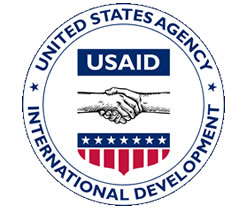 To address some of these challenges facing agribusiness in Ghana, USAID-FinGAP have trained personnel from financial institutions, including commercial, rural and community banks and business advisory service (BAS) providers, to better use cash flow-based financing along with traditional collateral-based financing.
To address some of these challenges facing agribusiness in Ghana, USAID-FinGAP have trained personnel from financial institutions, including commercial, rural and community banks and business advisory service (BAS) providers, to better use cash flow-based financing along with traditional collateral-based financing.
As of September 2014, the USAID-Financing Ghanaian Agriculture Project (USAID-FinGAP) has trained 64 participants from financial institutions and business advisory service providers on financial analysis and the use of cash flows to facilitate financing for agribusinesses in rice, maize and soy value chains in Ghana.
These were contained in a release from the Public Affairs section of the United States (US) Embassy in Accra signed by Mrs Zainab Mahama and copied to the Ghana News Agency (GNA).
It noted that agribusinesses in Ghana faced various difficulties securing loans to operate, such as large collateral requirements, high interest rates and short term loans. “Cash flow financing is critical for agribusinesses since, unlike other sectors, loan repayments usually begin several months after financing is given to the agribusiness and the repayment period is tied to the seasonal cycles”.
The release explained that collateral-based financing requires borrowers to secure loans with assets (usually landed property) of higher value than the loan they need and poses a challenge for small agribusinesses. Cash flow financing, on the other hand, considers future cash flows from the business as assets and, based on financial analyses, are able to back the loans with the expected cash flow from the business operations.”
It quoted Augusta Nyamadi-Clottey of the Ghana Grains Council, a BAS provider as saying that, “The training has given me the opportunity to enhance my knowledge on the determination of cost drivers for agribusinesses. I can now better help our clients – smallholders, aggregators and warehouse operators – conduct realistic financial analyses and develop sellable business plans to meet financial institution requirements.”
An Agricultural Project Manager for Upper East and Upper West regions of the Agricultural Development Bank, Francis Decker said, “I will take a new look at agribusiness financing requests going forward. I have learned new approaches in loan appraisals which I will incorporate into my work.”
And Rick Dvorin, USAID-FinGap Chief of Party, opening the training session also said, “Agribusinesses are profitable, yet financial institutions need to understand their specific operations and needs to be able to provide them financing. Successful agribusiness-financing leads to benefits for all: the financial institution, BAS providers, the agribusiness, and the general public as food security is improved and poverty is reduced.”
USAID-FinGAP is a five-year project that is unlocking financing for agribusinesses in the rice, maize and soy value chains based in or sourcing from northern Ghana.
The project is increasing the expertise of its network of business advisory service providers in identifying, preparing and packaging financing proposals for viable agribusiness opportunities.
It is also using a combination of incentives and technical assistance to help financial institutions better understand agribusinesses and develop products tailored to the special financing needs of agribusinesses.
Since its inception in July 2013, the project has facilitated over $4 million in financing for agribusinesses in the target area.
Source: GNA











